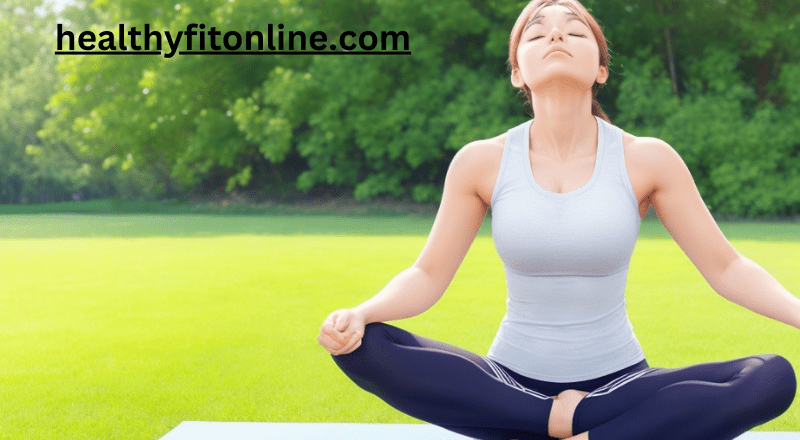In today’s fast-paced world, managing stress has become crucial for our overall well-being. We often find ourselves caught up in the whirlwind of daily life, leaving little time for self-care. This article explores the powerful combination of exercise and mindfulness to effectively combat stress and improve mental and physical health.
Why Is Stress Management Important?
Stress, if left unchecked, can lead to various health issues, both physical and mental. It can affect our sleep, digestion, and overall quality of life. By adopting stress management techniques, we can mitigate these negative effects and lead a more balanced and harmonious life.
The Synergy of Exercise and Mindfulness
Exercise: A Natural Stress Reliever
Regular physical activity has been extensively demonstrated to serve as a natural stress reliever. When we engage in exercise, our bodies release endorphins, which are commonly referred to as “feel-good” hormones.
These endorphins, in turn, instill a profound sense of well-being and play a crucial role in mitigating and alleviating the effects of stress. This physiological response to physical activity not only enhances our mood but also contributes to the overall reduction of stress levels, making exercise a valuable tool for promoting mental and emotional well-being
Different Types of Stress-Relieving Exercises
Aerobic Workouts
Engaging in activities such as running, swimming, and cycling leads to a notable increase in your heart rate, a physiological response that significantly contributes to the reduction of stress.
These forms of exercise, known for their cardiovascular benefits, prompt the heart to pump more blood and oxygen throughout your body. This heightened circulation not only promotes physical fitness but also triggers a cascade of positive effects on your mental and emotional well-being
Yoga
Yoga is a holistic practice that seamlessly blends physical postures with mindful breathing, delivering a harmonious combination of exercise and relaxation benefits. This ancient discipline not only nurtures your physical well-being but also nurtures your mental and emotional health.
Strength Training:
Lifting weights is a multifaceted practice that extends well beyond the realm of physical strength; it also plays a vital role in enhancing mental resilience. This form of exercise offers a comprehensive approach to personal development, addressing both the body and the mind.
Physically, weightlifting is a potent method for building and sculpting muscle mass, enhancing bone density, and increasing overall physical strength. As you lift weights, your muscles adapt and grow stronger, leading to improved endurance and power.
Mindfulness is art of living
Mindfulness is a mental practice that involves focusing on the present moment without judgment. It’s an effective tool for managing stress by reducing overthinking and promoting relaxation.
Incorporating Mindfulness into Your Routine
Meditation:
Dedicating just a few minutes each day to the practice of silent meditation can yield remarkable benefits, as it offers a serene sanctuary for clearing your mind and effectively reducing stress.
Meditation serves as a mental reset button, allowing you to disconnect from the incessant noise and demands of daily life. By finding a quiet and comfortable space, you create an environment where the mind can gradually release the accumulated tension and anxieties that often accompany a busy schedule.
Deep Breathing:
Engaging in the deliberate practice of deep, intentional breathing is a powerful technique that can profoundly calm and soothe your nervous system. This simple yet transformative approach helps you tap into the innate wisdom of your body, fostering a profound sense of relaxation and well-being.
Deep breathing entails inhaling slowly and deeply, allowing the breath to fill your lungs completely, and then exhaling in a controlled manner. This deliberate process encourages an increase in oxygen intake, which, in turn, enhances the body’s ability to function optimally.
The abundance of oxygen delivered to your cells fuels a sense of physical vitality while simultaneously reducing tension and stress.
Mindful Eating:
Focusing your attention on the taste and texture of your food as you savor each bite not only enhances your enjoyment of meals but also serves as a valuable stress-reduction technique.
By immersing yourself in the sensory experience of eating, you create a mindful moment that offers a welcome break from the demands and pressures of daily life.
This practice encourages a sense of presence, allowing you to relish your food more fully and find solace in the simple act of nourishing yourself.
The Benefits of Combining Exercise and Mindfulness
Improved Mental Health
The combination of exercise and mindfulness promotes better mental health. IIt reduces other mental health disorders, anxiety, and depression
Enhanced Physical Health
Both practices contribute to physical well-being. Exercise keeps the body in good shape, while mindfulness promotes relaxation and better sleep.
Better Stress Resilience
When you exercise and practice mindfulness, you develop the tools to handle stress more effectively. It enhances your resilience, allowing you to navigate life’s challenges with greater ease.
Incorporating These Practices into Your Daily Life
Creating a Routine
To manage stress successfully, it’s essential to create a daily routine that includes exercise and mindfulness. Start with small, manageable steps and gradually increase the intensity and duration.
Setting Realistic Goals
Set realistic goals for your stress management journey. Boosting your confidence and motivation will achieve these goals.
Seeking Professional Guidance
If you find managing stress challenging, consider seeking guidance from a mental health professional or a fitness trainer. They can provide a regular advice and support
Conclusion
In the quest to lead a balanced and stress-free life, exercise and mindfulness are invaluable tools. Combining physical activity with a mindful approach to daily living can significantly improve your overall well-being. So, why wait? We need to take our first step in the stress free life.
FAQs
- What is the best time to exercise for stress relief?
- The ideal time to exercise for stress relief varies from person to person. Some find morning workouts invigorating, while others prefer evening sessions to unwind. Choose a time that works best for you.
- Can mindfulness be practiced anywhere?
- Yes, mindfulness can be practiced anywhere. You can meditate or practice deep breathing in the comfort of your home, at the park, or even at your workplace during short breaks.
- How long should I meditate for stress relief?
- You can start with as little as 5-10 minutes of meditation daily and gradually increase the duration as you become more comfortable with the practice.
- Is it necessary to combine exercise and mindfulness for stress management?
- While both exercise and mindfulness are effective stress management techniques on their own, combining them can provide even more significant benefits.
- How can I make mindfulness a habit in my daily life?
- To make mindfulness a habit, set aside specific times each day for mindful activities and remind yourself to stay present in the moment.

